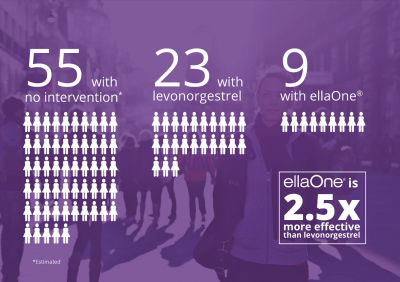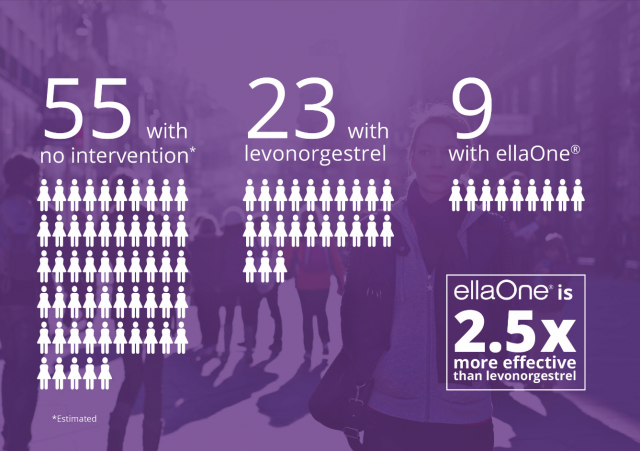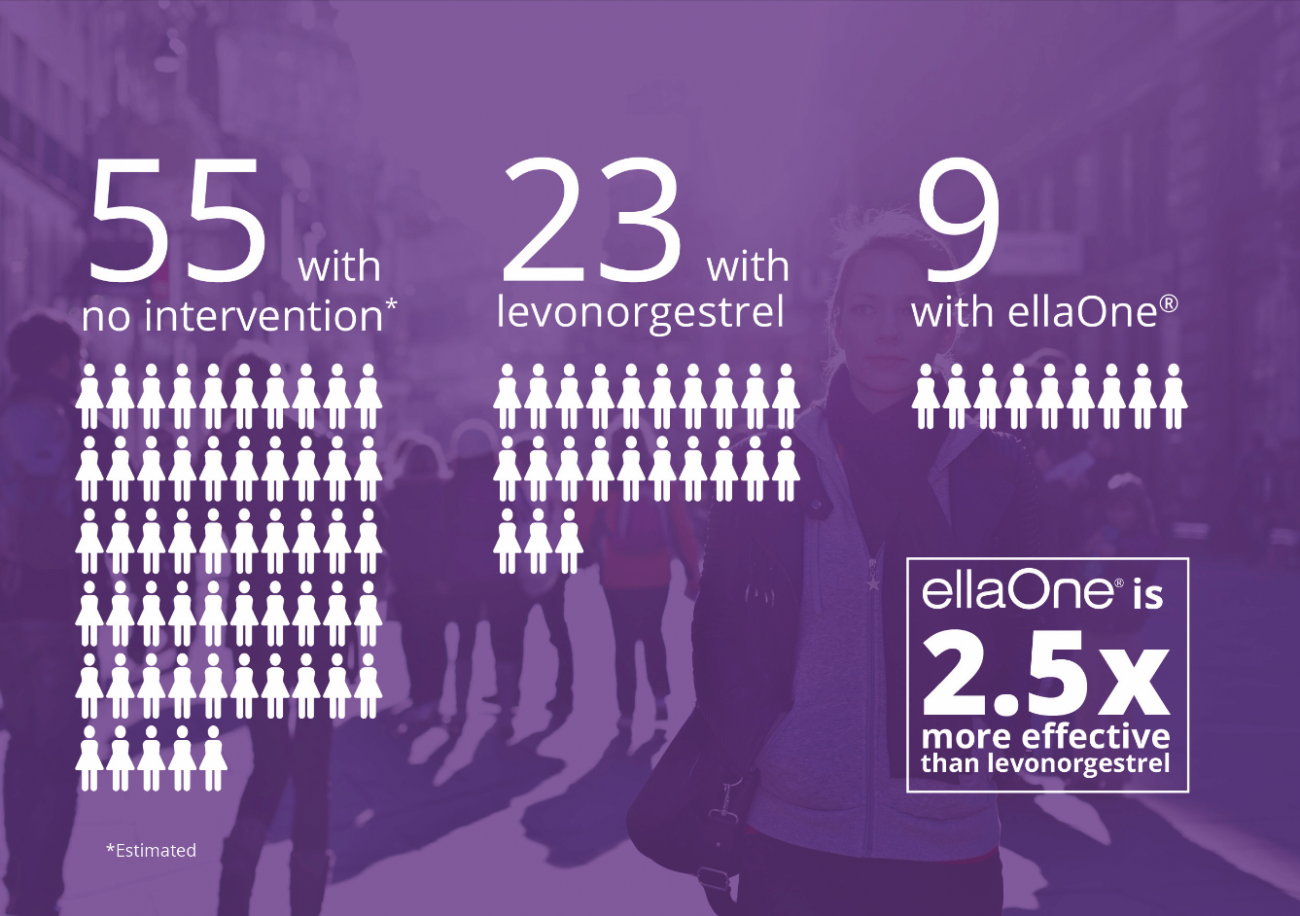ellaOne® emergency contraception effectiveness
If you’re reading this, you’re probably wondering how effective the morning after pill ellaOne® is. You may have heard that ellaOne® is more effective than levonorgestrel, but where does that information come from?
When you take the morning after pill, you may be wondering how likely it is to help prevent unplanned pregnancy. No contraceptive is 100% effective, but taking emergency contraception can greatly reduce your risk of unplanned pregnancy.
How does the morning after pill work?
During your menstrual cycle, an egg is released about once a month and is viable for 12-24 hours once it has reached the uterus – this is called ovulation and is the time of the month where pregnancy can occur. During ovulation, your egg can be fertilised by sperm if you have unprotected sex.
Whilst the window of ovulation is pretty small, sperm can survive in the body for up to 5 days, so you can potentially get pregnant even if you don’t have sex on your ovulation day itself.
The morning after pill works by delaying ovulation, delaying the release of the egg so it won’t be fertilised by sperm. If you have already ovulated, the morning after pill won’t be effective.
Your ovulation day can change from month to month depending on various factors like stress, diet and sleep patterns. This means it’s really hard to tell exactly when you’re going to ovulate, which is why we recommend taking the morning-after pill in the event of contraceptive failure or unprotected sex if it is a suitable option for you- even if you think the chances of pregnancy are fairly low.
Ulipristal acetate versus levonorgestrel
There are two main types of emergency contraceptive pill available in the UK: ellaOne®, which contains ulipristal acetate, and other emergency contraceptive pills which contain levonorgestrel.
Ulipristal acetate and levonorgestrel both work by delaying ovulation to help prevent unplanned pregnancy in the event of unprotected sex or contraceptive failure. Clinical studies have found that ulipristal acetate is 2.5x more effective than levonorgestrel when taken within 24 hours and can help prevent ovulation even when you are about to ovulate.
ellaOne® versus levonorgestrel: A clinical study
How effective is ulipristal acetate? The study
In 2010, a study was conducted to determine the efficacy and safety of ulipristal acetate and levonorgestrel in emergency contraception. This was a randomised, single-blind study of 2221 women aged 16-35 with regular menstrual cycles who went to a participating sexual health clinic within five days of unprotected sex to get emergency contraception. The participants were randomly assigned either a morning-after pill containing ulipristal acetate or levonorgestrel.
Follow-ups of the participants after the study found that out of the 1696 ‘efficacy-evaluable population’ (e.g. those who were not excluded from the findings because they did not come back for the follow-up, or their pregnancy status wasn’t known) who had taken either levonorgestrel or ulipristal acetate within three days (72 hours), there were 22 pregnancies in the group who had taken levonorgestrel and 15 pregnancies in the group who had taken ulipristal acetate.
An additional 203 women took an emergency contraceptive pill between three days (72 hours) and five days (120 hours) after unprotected sex. There were 3 pregnancies in this group, who were all in the levonorgestrel group.
The study demonstrated that ulipristal acetate prevented almost twice as many pregnancies as levonorgestrel. When used within 24 hours of unprotected sex, ulipristal acetate prevented almost three times as many pregnancies.
How effective is ellaOne®?
According to the meta-analysis of various studies completed in 2010, ellaOne® is 2.5x more effective than emergency contraceptives containing levonorgestrel if it is taken within 24 hours of unprotected sex or contraceptive failure.
If no emergency contraception is taken, an estimated 55 out of 1,000 will get pregnant. If levonorgestrel is taken, 23 in 1,000 will get pregnant. When ellaOne® is taken, just 9 in 1,000 will get pregnant.
ellaOne® has also been found to be effective at delaying ovulation right before ovulation was due to occur. For 59% of participants, ovulation was postponed for at least 5 days but did occur later in the same cycle.
No contraceptive is 100% effective and the morning after pill cannot prevent pregnancy if you have already ovulated, but ellaOne® has been trusted since 2015 and has been clinically proven to be 2.5x more effective than levonorgestrel.
Have you ever taken the morning after pill? Share your experience below and help us end the stigma which still surrounds emergency contraception.
Click here to view further information regarding this clinical trial or alternatively contact HRA Pharma directly.
ellaOne® 30mg film-coated tablet contains ulipristal acetate and is indicated for emergency contraception within 120 hours (5 days) of unprotected sexual intercourse or contraceptive failure.






